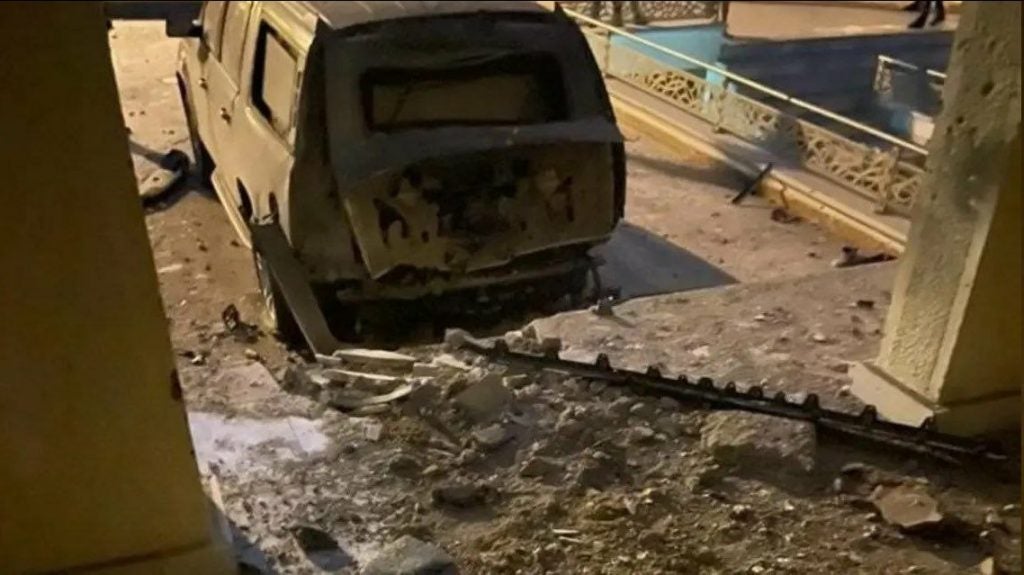Iraqi Prime Minister Survives Drone Assassination Attempt
Iraqi Prime Minister Mustafa Al-Kadhimi survived an assassination attempt early on Sunday, after armed drones attacked his residence in Baghdad. One drone struck the compound, with the Iraqi military saying that two others were shot down before they could attack.
In a Twitter statement shortly after the attack, al-Kadhimi called for “calm and restraint from everyone”, denouncing the “cowardly” attack. He continued:
“I was and still am a redemption project for Iraq and the people of Iraq. The missiles of treachery will not discourage the believers and will shake a hair of the stability and determination of our heroic security forces to preserve people’s security, achieve justice and set the law in place.”
Al-Kadhimi had been returning to his residence after personally supervising security forces monitoring a protest by pro-Popular Mobilization Unit (PMU) individuals at the southern gate of Baghdad’s Green Zone. Leaders of the pro-Iranian militias have called for protests after political parties representing them lost parliament seats during elections in October, claiming electoral fraud was responsible for their loss of power. Following threats of violence, protesters attempted to storm the Green Zone last Friday, resulting in the death of one protester at the hands of security forces.
While official statements from the Interior Ministry state that Al-Kadhimi was unharmed in the attack, with six guards of the residence suffering injuries, sources close to the Prime Minister said to journalist Ali Al-Mikdam that he had suffered minor injuries. While the Iraqi government denies it, Al-Mikdam has noted what appears to be a wound dressing in photographs and video of the Prime Minister taken following the attack.
U.S. President Joe Biden has issued a condemnation of the assassination attempt, as well as of “those using violence to undermine Iraq’s democratic process”. Biden’s national security team has been instructed to “offer all appropriate assistance” to Iraqi security forces investigating the attack.
Influential Shi’ite cleric Moqtada Al-Sadr, whose block of political parties made significant inroads during the election, denounced the assassination attempt as a “terrorist act”. He described it as an attempt to return Iraq to a “state of chaos to be controlled by non-governmental forces, so that Iraq lives under the pain of riots, violence and terrorism, so that dangers and interventions from outside swept it from here and there”.
No claims of responsibility have been made for the assassination attempt, although Kata’ib Hezbollah has accused Al-Kadhimi of attempting to “play the victim”. The powerful PMU had several of its facilities on the Iraq-Syria border targeted by American airstrikes in June, with the Pentagon claiming at the time that the facilities were used to conduct drone strikes on U.S. personnel and facilities in Iraq.
While PMUs have long harassed Coalition facilities in Iraq with artillery rocket fire, Iranian-made drones have become increasingly commonplace in harassing attacks. Compared to the unguided 107mm rockets, the drones are significantly more precise and harder for defense systems to detect, sparking concern among officials in both Baghdad and Washington.

